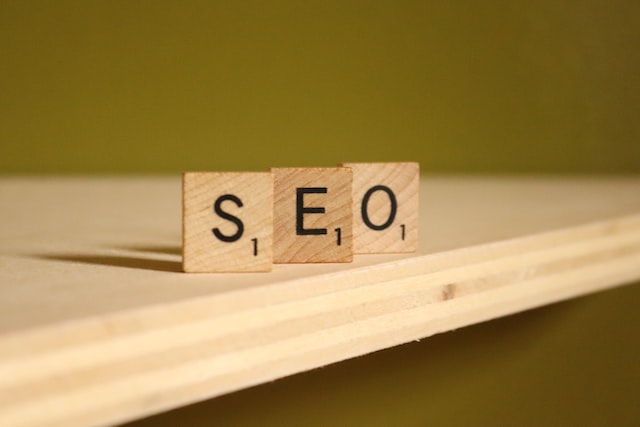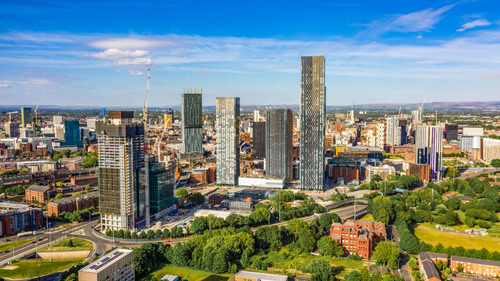
Home / Content Hub / Guides / Business advice guides /


Small business SEO: why you need it and how to get started
No matter how old your business is or what it does, search engine optimisation (SEO) is something you can’t afford to ignore! In this post, we’re looking at what SEO is, how it can help turbocharge your business and how you can get in on the action. Read on for more information about small business SEO.
Whether you’re a brand new start-up hot off the press or an established small business with a couple of decades behind you, we’re not exaggerating when we say that search engine optimisation (SEO) is something you can’t afford to ignore! In this post, we’re looking at what SEO is, how it can help turbocharge your business and how you can get in on the action.
What is search engine optimisation?
First things first, what exactly is SEO? Put simply, it’s all about getting your website to appear higher up in search engine rankings (mainly Google, if we’re honest) for particular search terms relevant to your business.
For example, as a Cardiff-based florist, you’d want to be ranking highly in the results pages when someone makes a search such as “flower delivery in Cardiff”, but probably not for “garden centres in Swansea”. These search terms are called “keywords”, and they’re what make the SEO world go round.
Research shows that more than half of all clicks in your average Google search are for the top three results, so you can see how it would pay to appear higher. Clicks mean customers! SEO is the art of raising those rankings, and it’s a process that involves signalling loud and clear to the clever search engine algorithms what search terms your website should appear for.
How SEO works
By getting your website in front of more potential customers, SEO gets a lot of your marketing done for you. It uses methods that can be categorised into two broad areas: on-page optimisation, and off-site factors, also known as link building.
- On-page optimisation is about changing different parts of your website to include target keywords – such as the metadata (mainly the title tag and meta description, which form the blue link text and the copy underneath it in the search results), headings and body copy.
- Link building is about gaining links from other websites to yours, known as backlinks, and the more authoritative and relevant the site they come from, the better. A link from the BBC, for instance, would be worth a lot more in SEO terms than one from the blog your mate set up last week.
Google and other search engines know that people want quality content, so SEO shouldn’t be an exercise in stuffing as many keywords as possible onto your website – that would do a lot more harm than good. Instead, the aim is to make your website as useful and relevant as possible to the search terms you want to rank for.
You can do this by ensuring that there’s enough content on each page (to an algorithm, a page with 30 words of copy looks less useful than one with 300 words), and by creating new pages around relevant topics. For example, if you were a florist, you could create a blog with regular posts on interesting flower-related subjects on the kinds of things people might search for – such as one on Mother’s Day flowers.
How to get started with SEO
The best way to get started with small business SEO is to take a look at the Moz Beginner’s Guide to SEO, where you can download a quick-start SEO worksheet so that you don’t miss anything important.
All SEO begins with what’s known as ‘keyword research’, which will help you uncover the search terms that have the most potential to bring customers to your virtual door.
Keyword research
Start by thinking about what your customers are looking for, and what it is you offer. For example, do you sell a particular product, or offer a specific service? Or are customers always asking you the same questions?
To help discover keywords, or understand how popular a particular term is, try using a keyword tool, such as Google Trends or WordStream keyword tool. Both are good (and free!) places to start. And don’t underestimate the power of ‘longtail’ keywords – those that aren’t as highly searched for or are very specific. These keywords will likely convert well and have less competition to get to the top of the results page.
Once you have your list of keywords, you need to make sure that you have content dedicated to them on your website. This can be done on your website pages (homepage, about etc) or for those longtail words, you could try creating blogs around key topics.
Link building
As mentioned at the start, link building is important to help build your website’s authority. A higher authority score in the eyes of Google means better performance. Link building can mean two things:
- Internal links
- External links
Internal links refer to linking different pages across your website. For example, you may want to link to a blog post from a product or service page, which gives more information on a topic mentioned. These internal links point search engines to more important pages.
External links are from other websites, directing back to yours. Ideally, you want these to be of good authority themselves, feature relevant, quality content and a follow link. You can find out more about follow vs nofollow links here.
Local SEO
As you go through the process of optimising your website, one of the things you’ll want to consider is how your website performs in ‘local’ searches. These are searches for things in a particular geographical area – for instance, that “flower delivery in Cardiff” one we mentioned earlier. One way to do this is to make sure that your website features content that is tailored to the areas you do business in, but it’s also to do with the postal address of your premises as listed on your website and on Google Maps.
If you’re an online business and don’t have a physical address, a virtual office is a great way to get yourself your very own business address in a particular city and thereby start ranking for local searches in that area. It also allows you to expand your business rapidly into other areas, placing your company right in the heart of where your customers are without having to invest in brick-and-mortar premises.
If you’re thinking about a virtual office to support your small business and improve your local SEO, take a look at our locations to find one that’s right for you!














